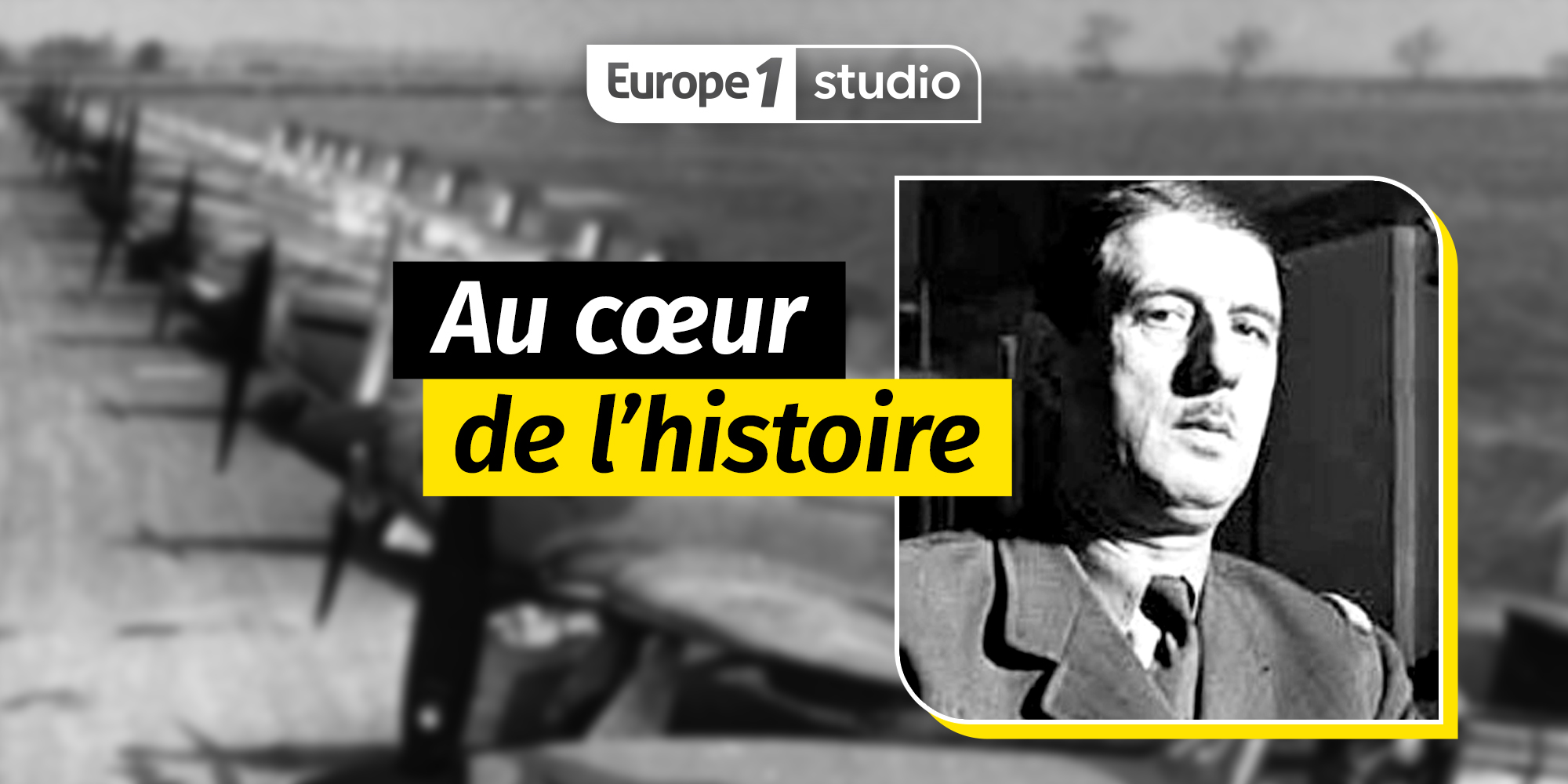On June 18, 1940, a few hours before General de Gaulle, British Prime Minister Winston Churchill also delivered an historic speech. Discover this story in this bonus episode of "At the heart of history".
Listening to the account of General de Gaulle's appeal of June 18, 1940, you may have wanted to know more about the speech delivered by Winston Churchill the same day before the House of Commons. In this bonus episode of "At the heart of history" , history specialist Jean des Cars tells you how the speech of the British Prime Minister also marked history.
Having come to power only a few weeks after the disaster of English troops in Norway, Churchill's task was not easy. He was not liked by his Minister of the Interior, Chamberlain, ex-Prime Minister, or by that of Foreign Affairs, Lord Halifax. They only dreamed of pushing him to fault to regain power.
Churchill's first speech in the Commons on May 13, 1940 is famous. It was the one in which he announced: "I have nothing else to offer you but blood, sweat and tears".
He explained that the only goal he proposed was: "Victory! Victory! Victory!"
Halifax and Chamberlain had appreciated little. They were in favor of negotiations with Germany and not of an all-out war. But Churchill will prove to be a genius tactician. On May 25, the entire British army on French soil was surrounded by the Germans in Dunkirk. The Royal Navy cannot come to their rescue because it would probably be destroyed by German aviation before reaching Dunkirk.
Churchill's triumph
Churchill then had the audacious idea of Operation Dynamo: he asked all owners of private boats, of all sizes, to come to the aid of English troops. On June 4, the operation ended with success. 335,490 men will be evacuated! It's a miracle. Churchill will then deliver another speech this June 4, before the Commons. It is a speech in which he considers that this successful evacuation, without being a victory, is a good start. The UK will fight everywhere, on the seas, on land and in the air.
It's a triumph! Churchill has for him the Parliament, King George VI and especially the British people. Then came the French debacle and a second miracle for Churchill: the arrival of General de Gaulle in London. And this is where the speech of June 18 comes before the House of Commons. Churchill begins with: "We will always maintain our bonds of camaraderie with the French people". And he adds: "The Czechs, the Poles, the Finns, the Belgians have united their cause with ours. All these countries will be liberated".
Not always simple relationships with de Gaulle
If France is not one of the countries that will be liberated, it is because the government of Marshal Pétain is negotiating the conditions of peace. And if he put "the French people" at the top of his speech, it is because Churchill already knows that France will be occupied. But he also knows that in an hour or two General de Gaulle will pronounce his appeal to the French Resistance.
It should be remembered that in London, several European governments in exile also called for the Resistance. France is now part of it. Churchill's relations with de Gaulle were not easy. De Gaulle benefited from the support of King George VI in difficult times. Two characters probably too assertive, too intransigent. De Gaulle had to win, Churchill couldn't bear it. However, their meeting was a determining factor in the continuation of the war.
Want to listen to the other episodes of this podcast?
>> Find them on our Europe1.fr site and on Apple Podcasts, SoundCloud, Dailymotion and YouTube, or your usual listening platforms.
>> Find here the user manual to listen to all the podcasts of Europe 1
"At the heart of history" is a Europe 1 Studio podcast
Author and presentation: Jean des Cars
Project manager: Adèle Ponticelli
Realization: Laurent Sirguy and Guillaume Vasseau
Diffusion and edition: Clémence Olivier
Graphics: Europe 1 Studio
Bibliography: Denis Tillinac Dictionnaire Amoureux du Général (Plon, 2020), François Kersaudy Winston Churchill (Tallandier, 2011), Under the supervision of Patrice Gueniffey and François-Guillaume Lorrain Major decisions in the history of France (Perrin / Le Point, 2018)

